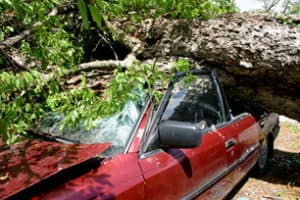Can Someone Else Drive My Car if I Have Insurance?
In short, yes. If you have the right coverage, insurance generally follows the vehicle rather than the driver, and the one driving doesn’t have to be named as an insured for the vehicle to be covered. There are exceptions, however. Liability coverage within car insurance follows the driver. If your friend wrecks your car in an at-fault accident, your liability insurance likely won’t cover them. If someone frequently borrows your vehicle, it may be worth it to place them on your car insurance policy to make sure they’re covered in case of an accident.
Coverages that follow the car include:
- Collision: Collision coverage steps in if the driver collides with another vehicle or object.
- Comprehensive: Comprehensive covers against damage due to fire, theft, vandalism, wind and more.
Coverages that follow the driver:
- Bodily Injury Liability: This liability insurance helps pay for medical expenses for the other driver or passengers if you cause an accident.
- Property Damage Liability: This liability insurance helps pay for property damage you may cause.
In some circumstances, the policy holder’s liability coverage may step in if the driver’s liability insurance reaches its limit.
Remember that the extent of coverage and who it covers entirely depends on the situation and the policy. You may name some excluded drivers, meaning people listed on your policy that are not allowed to drive the vehicle. If you give any excluded driver permission to drive the vehicle and they get into a wreck, your insurance likely won’t cover them. If an excluded driver steals the vehicle, it may be covered, but it once again depends on the circumstances.
Will My Insurance Rates Go Up if Someone Else Crashes My Car?

Car Tree Insurance Claim
Unfortunately, your insurance rates are likely to go up if an approved driver crashes your vehicle. The vehicle is insured on your policy and you’ve taken responsibility for the driver’s actions after giving them permission to driving the vehicle. The good news is that any fines or tickets the driver receives while operating your vehicle will not affect your driving record or insurance. If your vehicle is stolen, you won’t be held liable for the damage the driver causes.
It’s important to make sure to let only drivers you trust behind the wheel. You may not be covered if the driver crashes due to driving under the influence of alcohol or drugs, driving without a valid license, intentional damage or criminal acts.
What if Someone Borrows My Car for Work?
This is where insurance grows tricky. Commuting is generally covered beneath a personal insurance policy. If something happens while the driver is conducting business, however, such as transporting people through a ride-sharing service or delivering food, neither you or the driver’s personal auto insurance policies may step in. Commercial auto insurance is required for any vehicle used for work purposes. Be clear about what the driver is using your vehicle for so you know they’ll be covered.
Additional Things to Consider
Most states allow you to exclude drivers, but a few don’t, including Kansas, Michigan, Virginia, New York and Wisconsin. Insurance agencies in states that do allow exclusions may require you to exclude certain high-risk drivers from your policy. If you live with someone with multiple traffic tickets, DUIs or other traffic violations, you may have to name them as an excluded driver. If you give them permission to drive your vehicle, your car insurance likely won’t cover them.
Contact us if you have any questions about your car insurance.

